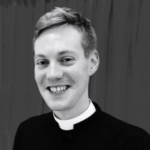The CTC team works across a wide range of London churches – from Pentecostal to Roman Catholic, and with church sizes varying from ten or twenty to the thousands. At this week’s staff meeting, we reflected on some of the common themes emerging from our experience of church-based community organising in the midst of the lockdown.
The first theme that has emerged is the way that the pandemic has revealed some previously hidden truths about our common life.







 In last Sunday’s sermon, Fr Richard Springer (Rector of
In last Sunday’s sermon, Fr Richard Springer (Rector of 